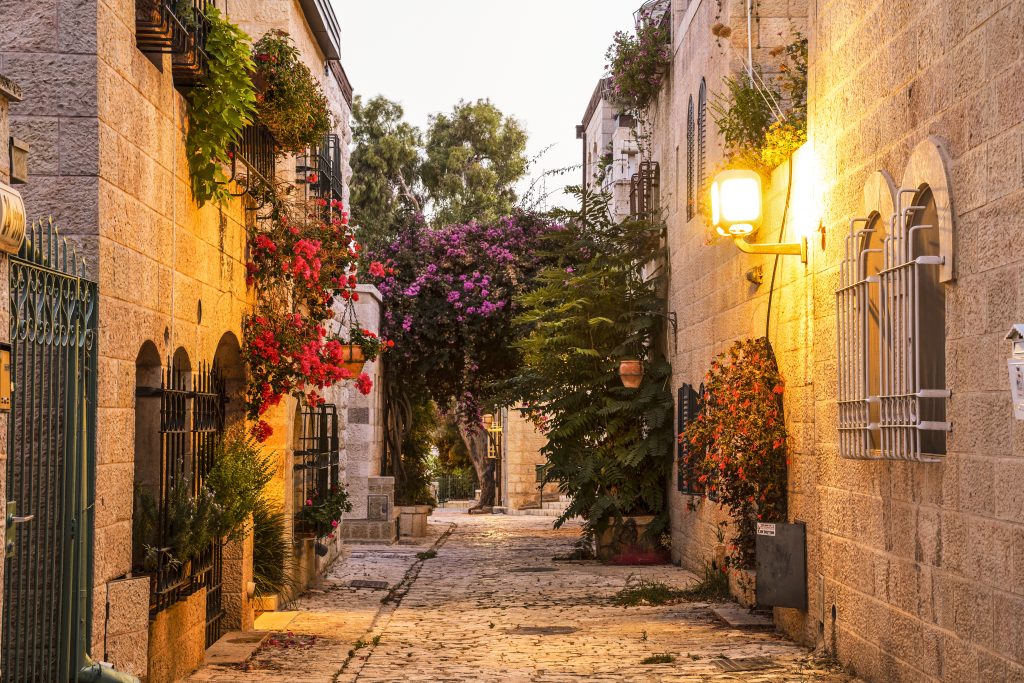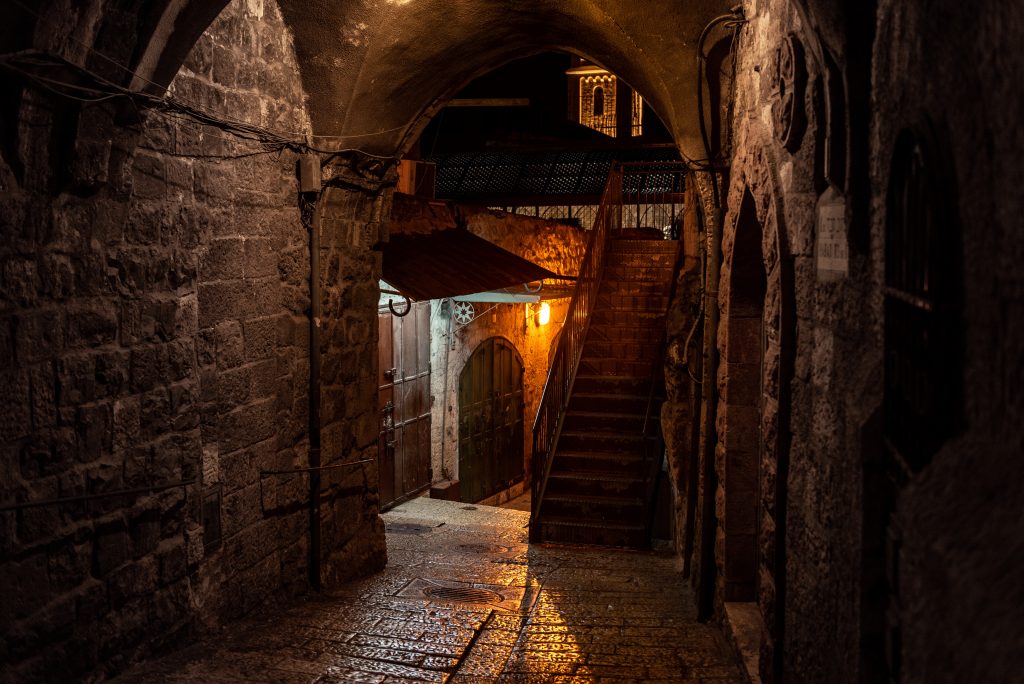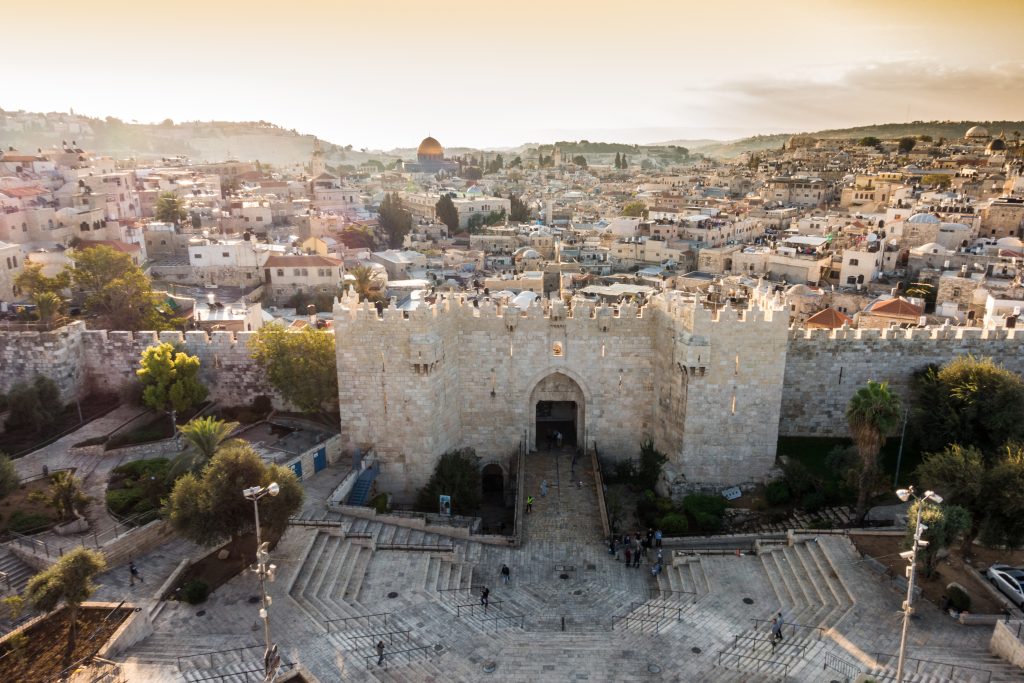Who Owns Jerusalem?
The city of Jerusalem – and who owns Jerusalem – is lining up to be the single-most challenging foreign policy issue of our time. How remarkable considering that this city has none of the ingredients of greatness! What do I mean by that?
Jerusalem has a fairly small population of less than 900,000 (as opposed to millions residing in NYC, Paris or Singapore). It is not located on major roads, and doesn’t have any major waterways (like rivers) or resources.
Yet, Jerusalem remains exceptionally important on the world map. Why? It is not just the most difficult issue of the past, present, and future peace negotiations. Issues pertaining to Jerusalem are broader than you can imagine.
Ultimately, this “City of the Great King” is in Israel. Today, Israel owns Jerusalem; she is Israel’s capital city. So why all the fuss?
History of Jerusalem Ownership
For nearly one hundred years the world has had to contemplate ‘the Jerusalem Question.’ Simply put, who is the undisputed, internationally recognized owner of the Holy City?
The last recognized holder of Jerusalem was the Ottoman Empire, which held the city for exactly 400 years. They lost it to the British in December 1917, and then the empire itself fell apart in 1923.
Since then, there has been no consensus on who the final owner should be. Even though there have been no less than five dozens proposals to solve the Jerusalem issue!
Why is the status of this city so difficult to resolve? For starters, it does not merely involve the Israelis and Palestinians. It is important for us to know that Jerusalem has other powerful stakeholders. This includes the United Nations, the European Union, the Vatican, Russia, the United States, the Orthodox Church, and the Muslim world under the OIC.
All these entities have a finger in the ‘Jerusalem pie’ and any one of them can wield a veto to knock a settlement off the board. Add to this list 4,000 years of turbulent history, with a variety of owners, and several theologies, too.
Jerusalem as an International City
For a short time, it appeared that there might be a resolution of this issue, however temporary. In November 1947, the young United Nations voted to partition the British-mandatory Palestine into an Arab state and Jewish state. This was called the UN Partition Resolution 181.
As for Jerusalem, it was to become a corpus separatum, meaning ‘separated body’, an international city under UN supervision. This status would remain for about 10 years. After that time the city was to hold a referendum, to see which way the inhabitants wanted to go.
So what happened to Resolution 181 and the international status of Jerusalem? The Jewish community accepted the resolution, but the Arabs rejected it totally.
Once the British withdrew, the 1948 Arab-Israeli war began. Both sides sought to capture and defend their interest in Jerusalem. The result was that the Israeli forces captured the western sector (or, New City) while the Jordanian Arab Legion captured the historic Old City and the Mount of Olives.
The United Nations, the proposed guardian and supervisor of the international city, was no where to be found.
Did the United Nations (UN) try to own Jerusalem?
Once an armistice was signed between Israel and Jordan, the UN asked for the keys to the city. Both sides said ‘No.’
From their point-of-view, why should they give up their sector of the city, which was paid for with spilt blood of their soldiers and civilians? After all, the UN was an entity which did not lift a finger in its defense. So Jerusalem, the attractive, updated capital was divided between two hostile countries.
Barbed-wire, no-man’s land, mine fields, and sniper fire became part of life in the divided city. Apart from tourists, diplomats, and Israeli Christians, no one could cross from one side of the city to the other.
Continued Battle over Jerusalem
The 1967 war, changed the face of Jerusalem. The victorious Israel Defense Forces captured the Old City and Mount of Olives and reunited the city.
At the end of June 1967, Israel annexed the eastern sector. It declared the entire city to be the indivisible, eternal capital of the State of Israel, and coined the phrase ‘Jerusalem is not negotiable.’ It would not be on the negotiating table in any future peace talks with the Arabs.
While there was no question in Israel’s mind that Jerusalem was to remain in its possession, the rest of the world had other ideas. Foreign embassies refused to locate in Jerusalem, or moved out of it, preferring to be based in Tel Aviv 65 kilometers away.
Passports of western citizens born in the Holy City would merely have ‘Jerusalem’ as their place of birth. In essence, it became a city without a country. The world community said that the status of Jerusalem was not settled in June 1967; it must be decided as part of a comprehensive peace agreement with the Arabs.
The Jerusalem Question
For over ninety years, since the fall of the Ottoman Empire, the international question has been ‘Who will own Jerusalem?’. This is known as the ‘Jerusalem Question.’
There have been five dozen proposals over the years but one or more of the many parties who have a stake in the Jerusalem Question have said ‘No.’
These interested parties include Israel, Palestinian Authority, the Arab League, the Organization of Islamic Cooperation (OIC), the Vatican, the European Union, the United Nations, Russia, and the Orthodox Church. No wonder the question of Jerusalem is so difficult to solve.
The Battle for Jerusalem does not mean that guns are fired and bodies fall everyday. No, the battle happens daily, but at several levels: political, cultural, theological, spiritual, and physical.
The Ongoing Conflict
The spiritual battle is ongoing and intensifying – it is the daily one. Physical battles have been many throughout Jerusalem’s long 4,000 years of history. The last full-on battle was in June 1967, when the Israel Defense Forces captured the Old City and the Mount of Olives from the Jordanians.
Low-level battles include riots and two Palestinian uprisings, otherwise known as intifadas. Even recently, with several of the Gaza wars (Operations), there has been more spot-rioting.
We look at a most unlikely battlefield: it is what we can call ‘inter-Jewish.’ The Jewish people around the world, pressed by different activist groups, start to question Israel. The ones in Israel mostly agree that Jerusalem should remain united under Israeli rule. But even there is a schism among those Jews who live in Jerusalem specifically.
Residents Who “Own Jerusalem”
The Jewish people make up about 60% of Jerusalem’s population, maybe more. Possibly even half of that are Haredi Jews – the religious group. The growth of the religious population can be attributed to a higher birth rate and emigration of secular Jews.
Why are secular Jews leaving Jerusalem? For various reasons, but one is that Jerusalem is by default a religious city. Its night life can be dull compared to bopping Tel Aviv 65 kilometers down the road. There are also strict rules on the Sabbath, because the Haredim (plural of Haredi) want to keep theaters and restaurants closed, and cars off the streets.
Though life between Jerusalem Arabs and Jews can be mostly calm, there are times when things flare up. And this may also make some secular Jews look for calmer pastures. Secularists are probably tired of the two battles they face: Arab vs. Jew as well as Jew vs. Haredi.
If, in the future, tensions rise between secular and Haredi Jews (like more Sabbath restrictions or drafting religious Jews into the army), Jerusalem would be the fault-line.
Furthermore, some (no one knows the amount) of Haredi do not believe that the State of Israel has a right to exist. In their mind, only Messiah can create a Jewish state and anything created by man is a fraud.
Fellowship of Ministries
The battle for Jerusalem increases in intensity. Our ministry, The Fellowship of Israel Related Ministries (FIRM), has its headquarters in Jerusalem. Being part of this spiritually and historically significant place grounds all that we do.
As believers, we’ve been entrusted with the message of reconciliation that can only come through the name of Jesus. We believe that God is calling us to be His hands and feet and bring Hope & Healing to those who are suffering.
“Pray for the peace of Jerusalem: May they prosper who love you. May peace be within your walls, and prosperity within your palaces.” (Psalm 122:6-7)
We encourage you to pray – it means so much to us and moves the heart of God. Together, we can help provide emergency relief for hurting people during this present crisis. May it happen for the sake of the Gospel and for the glory of the King!

God’s Perfect Plan – From Israel to You: Free PDF Download
The Bible is full of God’s promises that can encourage our faith. Together, these promises make up one master plan of God.
You’re about to discover God’s perfect plan through the lens of 25+ references throughout Scripture.
Articles Related to Who Owns Jerusalem
Estimated reading time: 8 minutes



